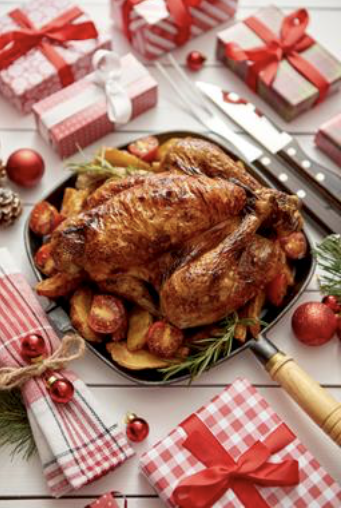The 5 most common Christmas accidents and how to avoid them
The two weeks spanning Christmas and New Year’s Eve is a notoriously busy time of year for emergency departments across the country. If a hospital waiting room is the last place you want to be on Christmas Day, then read on.
To avoid having a festive season that’s more ‘oh no’ than ‘ho ho’, here are five of the most common Christmas hazards to avoid.
1. Stairway to injury
One of the main reasons people are hospitalised over Christmas is due to falls from putting up or taking down decorations. According to the Australian and New Zealand Journal of Public Health, nearly 5,000 Australians are admitted to hospital each year as a result of a ladder fall with men over the age of 60 most at risk.
If you think you’re safe because you’re not storeys high, think again. You don’t have to fall from a great height to injure yourself. Look after your ‘elf’ by checking your ladder before you use it and ensuring it’s placed on solid even ground.
And don’t decorate alone! Make sure there’s someone nearby who can lend a hand and call for help if needed.
2. Is your tree risk-free?
One of the biggest Christmas hazards could be decked out with ornaments in your living room. Yep, your humble Christmas tree could be an accident waiting to happen.
In Australia, it’s more common than not to have an artificial tree and if that’s the case in your home, make sure your faux tree is fire resistant, kept away from any heat sources and not blocking any doorways or exits. If you’re decorating your tree with lights, look out for broken cords or loose bulbs.
For those with little ones at home, avoid hanging any ornaments that resemble food, are too close to the ground, have sharp edges or are small enough to be a choking hazard.
3. Share festive fun, not food poisoning
This Christmas, don’t give the gift that keeps on giving (in the worst possible way). With food poisoning affecting an estimated 4.1 million Aussies each year, the safe prep and handling of your Christmas feast is fundamental.
Here are a few tips to ensure the only bugs you’re getting over Christmas are of the Moreton Bay kind:
- As tempting as it might be to keep picking at the cheese and cabanossi, if food has been on a table for more than two hours, bin it.
- Ensure raw meat doesn’t touch any other food or any other objects (including knives, chopping boards or tongs).
- Keep your drinks on ice to leave space for food in your fridge, and keep your fridge temperature below five degrees.
4. ‘Tis the season to drink responsibly
Our weekly alcohol intake triples over the festive season. Whether you’re on a ladder hanging up decorations, carving a turkey with an electric knife or driving down to the shops for an extra bag of ice, to avoid injuring yourself or others there are times over Christmas where you shouldn’t be under the influence of alcohol.
And if you’re in charge of popping open the bubbly, take care. Champagne corks can travel up to 80km per hour, with injuries ranging from retinal detachment to corneal damage and even blindness. Remember to hold the cork down while removing the wire, use a towel and keep the bottle at a 45-degree angle away from yourself and others.
5. Toy-related trauma
Skateboards, hoverboards, rollerblades, bikes and scooters; in addition to being some of the most popular gifts at Christmas, they are also the most hazardous. So, if you’re giving a present with wheels, make sure you give the gift of a helmet too.
And it’s not just the toys inside the presents that can harm us. One study found the second most common injury on Christmas Day is cuts from people unwrapping their gifts with knives and scissors. Ouch!
Despite all the top tips in the world and your best efforts, accidents can still happen. So, if you need us, we’re here to help. We understand that emergencies don’t wait for the season’s festivities to be over, which is why we’re open right throughout the Christmas and New Year period.
Source: NIB.com.au

